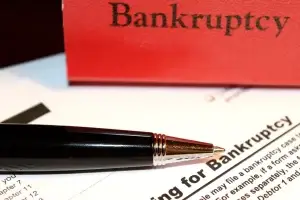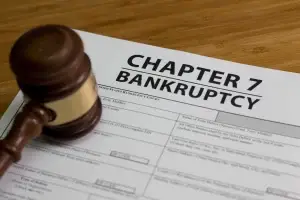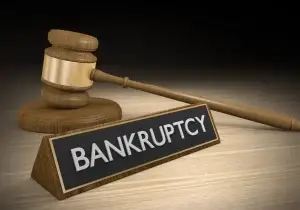If you’re looking to restructure your debts, there are a few options available to you. The most commonly used by individuals include Chapter 7, Chapter 13, and debt consolidation.
While Chapter 7 sees an individual surrender his or her unexempt property to repay debts, Chapter 13 and debt consolidation are used to reorganize debt in a way that ensures creditors are paid what is due to them while still preserving the debtor’s personal assets. Under Chapter 13, a debtor files a petition in a bankruptcy court within his state. He submits a list of his landed property and the accompanying deeds along with other properties and the necessary documents. After his application is approved, a trustee collects a monthly payment and distributes payments to creditors. The amount you pay creditors is determined by your Chapter 13 plan and not the creditors’ claims.
Debt consolidation is different. It is privately arranged, that is, without the involvement of the court. Here an individual owing different creditors enters into an agreement with a third party who pays off the debts at a lesser amount depending on the settlement with creditors. Here the creditors control how much they must be paid.
But What Is The Advantage Of Debt Consolidation? Does It Slash Your Debt? How Preferable Is It To Chapter 13?
One of the major attractions of debt consolidation is that it gives much—needed relief from creditor harassment, allowing you to explore the options you have to raise funds and settle the debt on a new schedule as negotiated by the debt consolidation company.
Let’s imagine that you’ve been dealing with debt from five different creditors. They’re on your neck, sending you emails, messages, reminders et al. They want a repayment and you do not have the cash readily available to pay them off. With the help of a debt consolidation company, you can offset all of these debts just as you take on a new aggregated debt with a single company. You’d then have the time to think through your payment plan for this new debt that has been incurred.
The reality is that debt consolidation would certainly increase your overall debt, though slightly. This is because the new debt comes with an interest rate. Normally, these rates are on the low side, yet they could add significantly to your total debt by accumulating if you fail to repay on time.
The Small Matter Of Publicity And Credit Ratings.
Even though filing for bankruptcy is a legitimate way to resolve the financial difficulty, many people are understandably reluctant to go that route because of the associated negative perception which can result from the fact that bankruptcy is a matter of public record. These days, it is quite easy to find out whether someone has taken out a bankruptcy. With the aid of the PACER software, your bankruptcy records will bubble up to the surface if someone cares to check.
It’s also possible to discover a debt consolidation but the difference lies in the effect these discoveries have on your credit score. Note that a bankruptcy report could remain on your credit report for about 10 years. However, in debt consolidation, the creditors who have not been paid will continue to report the delinquent payments and may even file suit if they are not one of the first creditors paid.
However, for many money lenders, evidence of regular and total payments of all sums due under a Chapter 13 plan or after a debt consolidation is a sign of good credit behavior. They would consider this in good light and appraise your credit report fairly.
Chapter 13, Debt Consolidation And Your Property
For everyone looking to manage debt, the big question is which approach best protects property. No one wishes to lose their property at the same time when struggling to pay off debts.
A loan under debt consolidation could either be secured or unsecured. A secured loan is one taken while using your landed property as collateral. An unsecured loan is backed by your assets. The implication of taking a debt consolidation with your property is that should you default on making payments as arranged under the contract, you stand the risk of losing your property to your creditors. What they’d need to do is simply initiate court proceedings against you. Once they are able to prove breach of contract and all other requirements of the law are met, ownership in the property will be transferred to your creditors.
Does the same thing happen when you default under Chapter 13? That depends – while your case is ongoing under Chapter 13, your creditors cannot bring an action to take over your property. Yet, if you fail to make payments as stated in the plan, and the court dismisses your bankruptcy case, then your creditors will be free to come after your property since you’ll no longer be protected.
With either option though, you’d still have the option (assuming you meet all the requirements set out in the law) to initiate a Chapter 7 bankruptcy to discharge your debts. You’d lose property this way, but it’d be in a more controlled manner and you’d be able to avoid the fees of defending against your creditors’ claims, and also be fully discharged (with the exception of debt like student loans and child support) at the conclusion.
Making Your Choice.
One good thing about debt consolidation is that it is less tedious and less costly to undertake. It is also far less formal. If you file a chapter 13, you’d most likely need to hire a lawyer, attend credit counseling classes (via phone or computer), attend court, take part in meetings involving the trustee appointed by the court and your creditors. It could burn time you could use for other more pressing matters.
On the flip side, debt consolidation is basically a transfer of debt. All it takes is a contract with a third party to settle your pay off the debt owed to your creditors. It gives you the opportunity to take care of due debts without the formality of legal proceedings. A good option for those who feel confident in repaying the new debt incurred in a short time span. Once you’re able to pay off your debt in accordance with the agreement, you’ve got no problem! Nonetheless, you’d be better served by having an experienced lawyer to represent you in the negotiation with the new creditor to ensure you get the best terms that would make it easier to pay off the debts as and when due.
This option is better for those who are in debt but think they can get the money to repay in a short time. It must be taken with caution and proper advice, nonetheless. If you are eventually unable to pay for any reason, you risk racking up even more debt as a result of the accumulating interest or even losing the property with which you secured the loan.
Several issues arise in debt consolidation as the smaller creditor debts are settled first and the larger creditors no longer want to wait and will file lawsuits against you. They will also continue to report late payments on your credit report. One thing you should never do before at least consulting a bankruptcy attorney is to take a 401k loan to pay for the debt consolidation.
The decision is never easy but taking time to think things through or seeking expert advice will make things a lot clearer for you.
About the Author: Roxane Kaye, has been practicing law since 2002. She is admitted to practice law in Michigan state courts and before the Federal Bankruptcy Court of Eastern Michigan, Southern Division, as well as the Federal District Court of the Eastern District of Michigan. Roxane covers cities such as Burton, MI, Flint, MI, Fenton, MI, Beecher, MI, Lapeer, MI, Waterford, MI, Auburn Hills, MI, Pontiac, MI, Howell, MI, Owosso, MI, Wixom, MI, Rochester, MI, Rochester Hills, MI, Novi, MI, and South Lyon, MI.
You may contact Roxane below:
Roxane M. Kaye
Kaye Law Office, PLLC
8161 S Saginaw St
Grand Blanc, MI 48439



